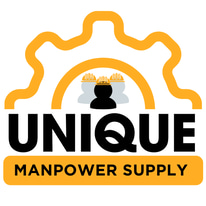
SERVICES
Understanding your staffing needs is a crucial part of running a successful business. It involves assessing the current workforce, identifying gaps in skills or roles, and predicting future hiring requirements based on growth projections. This process requires a comprehensive analysis of both short-term and long-term business goals. By evaluating factors such as workload, project timelines, and employee performance, managers can make informed decisions about how many staff members are necessary and what qualifications they should possess.


01
Consultation


02
Screening & Selection
The screening and selection of labour is a crucial process for any organization seeking to build a competent workforce. This involves systematically reviewing applications, conducting interviews, and assessing candidates' skills and experiences to identify the most suitable individuals for specific roles. Effective screening not only focuses on qualifications but also considers cultural fit and potential for growth within the company. Organizations utilize various tools, such as aptitude tests and behavioral assessments, to ensure a thorough evaluation of each candidate.


03
Deployment
To ensure a smooth onboarding process, it is essential to arrange all necessary documentation in advance. This includes gathering employee identification, tax forms, and any other relevant paperwork that will facilitate a seamless transition into the company. An organized onboarding process not only enhances the new hire's experience but also allows them to acclimate to their new role efficiently. Following the documentation phase, careful attention should be given to placement within the organization, matching employees' skills and preferences with the appropriate teams. By taking these proactive steps, companies can foster a positive work environment that promotes productivity and employee satisfaction from day one.


04
Post-Placement Support
Regular follow-ups are essential in maintaining strong relationships with clients and ensuring their satisfaction. By checking in periodically, businesses can gauge how well their products or services are meeting customers' needs, address any concerns promptly, and gather valuable feedback for improvement. This proactive approach not only demonstrates commitment to customer care but also helps in building trust and loyalty. Implementing a structured follow-up system, whether through emails, phone calls, or surveys, allows companies to stay connected with their clients and make them feel valued. Thus, regular follow-ups are not just a courtesy; they are a critical component of effective customer relationship management.
OUR PROCESS

Contact Us
Get in touch with our consultants today to make your construction dream a reality.
Office # 201 Al-Baraha Building, Baraha St, Deira - Dubai, United Arab Emirates
+971 55 413 4557
+971 56 171 0636
Ramzankhan8132@gmail.com


Get in touch
Address
Contact
Hours
Monday - Saturday 9 AM - 6 PM
Sunday Holiday
